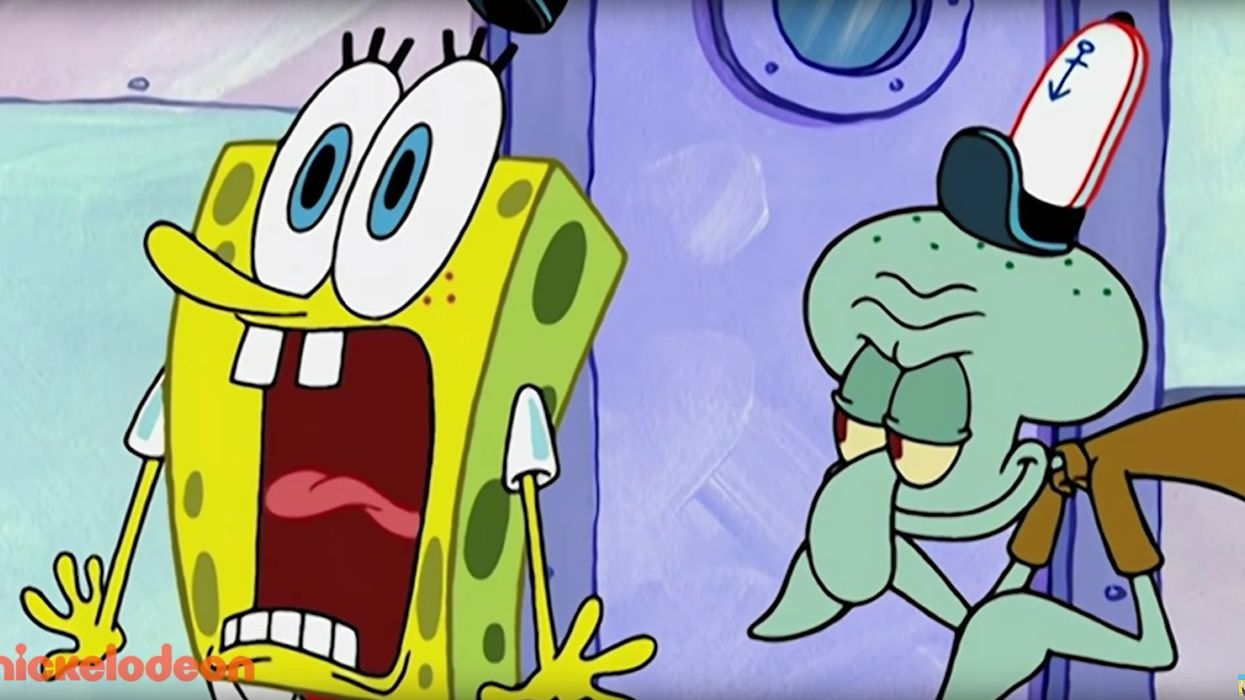
Image source: YouTube screenshot

Here we go again
A University of Washington professor is apparently gravely concerned about the cultural impact Nickelodeon's "SpongeBob SquarePants" could be having on indigenous people.
Professor Holly Barker penned an article that was featured in "The Contemporary Pacific: A Journal of Island Affairs" regarding the cartoon, insisting upon its dangerousness for perpetuating a legacy of racism and violence against Pacific indigenous people.
In an article titled, "Unsettling SpongeBob and the Legacies of Violence on Bikini Bottom," Barker said the show is promoting violence and racism against such people through its "occupation" of native Pacific lands. Barker also points out that the show also promotes "cultural appropriation" in using an island-themed motif throughout its production design.
In the article, Barker insisted that the show's fictional setting of Bikini Bottom — SpongeBob's home — is based on Bikini Atoll, where the U.S. military conducted nuclear testing during the Cold War. During testing, Bikini Atoll natives were relocated and were not permitted to return after scientific testing determined that the area was later uninhabitable due to the nuclear testing.
Though the show is simply a children's cartoon about an animated sink sponge living in an underwater city, Barker called the show "violent," "racist," and "insidious."
"SpongeBob's presence on Bikini Bottom continues the violent and racist expulsion of Indigenous peoples from their lands," Barker wrote. She pointed out that SpongeBob — an "American character" — benefits from the privilege of not having to care about nuclear testing and forced relocation.
"The detonations do not cause concern for the characters, as they did for the Bikinians, nor do they compromise SpongeBob's frequent activities, like visiting hamburger joints or the beach with friends," Barker added.
Barker also insisted that nobody — fictional character or not — should be able to "occupy Bikini."
"SpongeBob's presence on Bikini Bottom continues the violent and racist expulsion of Indigenous peoples from their lands (and in this case their cosmos) that enables U.S. hegemonic powers to extend their military and colonial interests in the postwar era," the professor continued.
The article even pointed claimed the theme song is problematic. The lyrics of the song say:
Who lives in a pineapple under the sea?
SpongeBob SquarePants!
Absorbent and yellow and porous is he.
SpongeBob SquarePants!
If nautical nonsense be something you wish,
SpongeBob SquarePants!
then drop on the deck and flop like a fish.
SpongeBob SquarePants!
"The first act of the song is to have children identify who resides in the pineapple house," she complained. "The children's response, repeated extensively throughout the song, affirms that the house and Bikini Bottom are the domain of SpongeBob."
"The song's directives, ensconced in humor, provide the viewer with an active role in defining Bikini Bottom as a place of nonsense, as the audience is instructed 'If nautical nonsense be something you wish...drop on the deck and flop like a fish,'" Barker continued.
Watching the show is just as bad, according to Barker, because "the viewer becomes an unwitting participant in the co-opting of Bikini's story and the exclusion of the Bikinian people."
If all that weren't incentive enough to cancel your Nickelodeon package, Barker insisted that the show is also biased against females.
Elsewhere in the article, she complained that save for one lone female main character, "all of the main characters on the show are male."
"The name 'Bob' represents the everyday man, a common American male, much like a 'Joe,'" Barker wrote, pointing out that perspective into the underwater world is "filtered" only through the "activities of men."
Barker added that while show runners did not, perhaps, intentionally create such a cultural travesty of a children's show rife with "racist, violent colonial practices," it still perpetuates the "insidious practice of disappearing indigenous communities."
“We should be uncomfortable with a hamburger-loving American community's occupation of Bikini's lagoon and the ways that it erodes every aspect of sovereignty," she concluded.